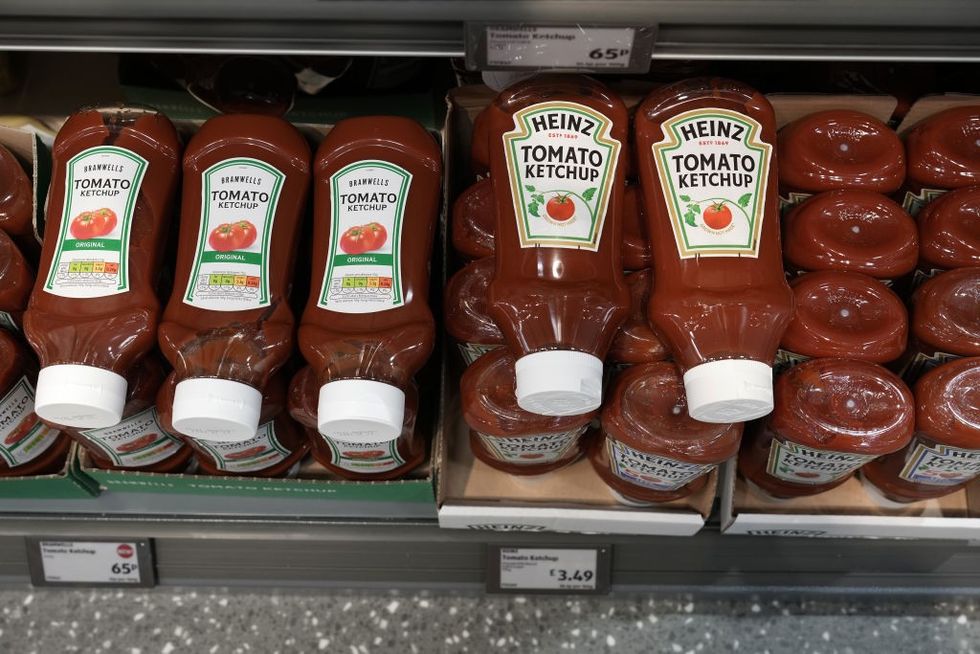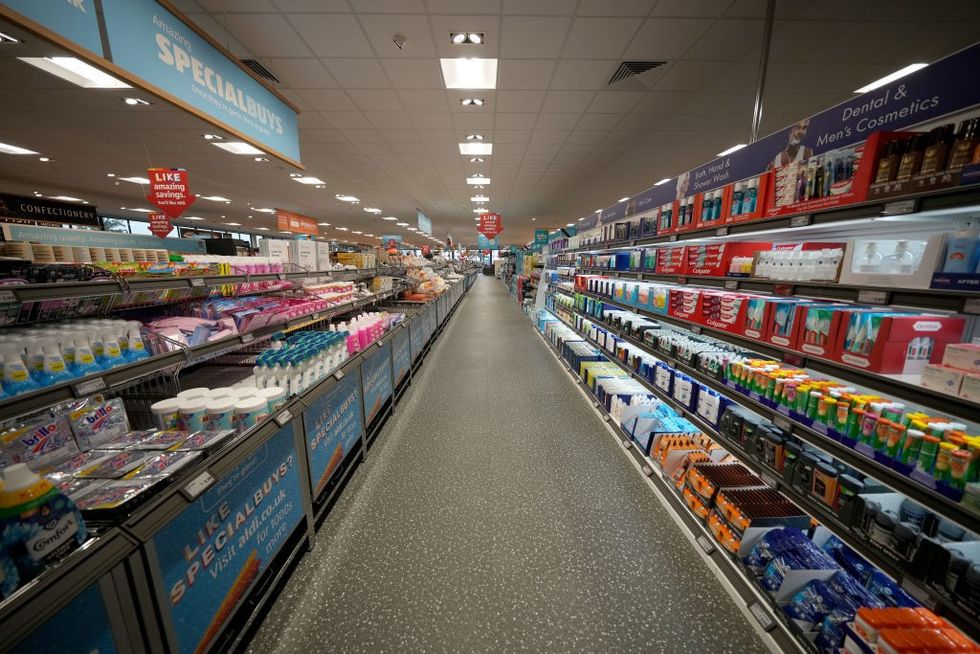Tomasz Łuksza, who took over his father's Polish confectionary business just over a decade ago, has a problem he's not unhappy about: European supermarkets want more gummy bears and chocolate-covered marshmallows than he can make.
"We're seeing at least two times the demand of last year and we can't take all the orders," said Łuksza, managing director and owner of 3 Topole, which supplies the private label brands of French retail giant Carrefour and several other European supermarkets.
Private label sales have been on the rise for years, but a global cost of living crisis driven by soaring energy prices appears to be turbo-charging the trend.
"Consumers are starting to be more price-aware," Łuksza said. "Inflation is making them want to save money so they're looking for cheaper alternatives and private label seems to be the answer."
An 85-gram bag of Haribo Golden Bears on Carrefour's website in Poland costs 3.49 zloty (£0.62), while a 100-gram bag of Carrefour Classic Żelki misie gummy bears, made by 3 Topole, costs 2.69 zloty.
In Europe, private label sales already account for a larger chunk of grocery purchases than in North America. Sales are expected to grow this year, according to the Private Label Manufacturers Association, though it did not give a figure.
Of all staple food sales in Western and Eastern Europe last year, more than 29 per cent and 9 per cent respectively were private label purchases, according to Euromonitor. In the hygiene and tissues sector, the figures were 41 per cent and almost 19 per cent respectively.
Though own label manufacturers face the same cost pressures as branded product rivals, they can rely on guaranteed demand from retailers who specify what goes into the product, how it's packaged and how much it will cost. Retailers are also more likely to swallow price increases on own label products because they are more profitable for them than branded items.
"Private label is one of the tools that they will use to convince shoppers to continue to walk through those doors rather than walk through the door to their competitors," said Andrew Walker, client knowledge director at market researcher Kantar.

In contrast, branded product manufacturers face increasingly fraught negotiations with retailers. Britain's biggest supermarket Tesco removed Kraft Heinz products from its shelves earlier this year after failing to agree pricing with the manufacturer.
In June, consultancy McKinsey & Co surveyed 5,000 shoppers in Western Europe about their shopping habits. Roughly 40 per cent of respondents said the biggest change they had made recently was to try new private label products.
Increasingly, consumers are happy with the quality, taste, variety, and innovation in private label products - and sticking with them, McKinsey Associate Partner Angus McOuat said.
'Smashing It'
Behind labels such as Tesco's "Finest" and Carrefour's "Simpl" are thousands of businesses that make food and personal goods on behalf of the supermarkets. These firms are often small operations that serve several retailers at the same time, from low-cost Lidl to John Lewis' high-end Waitrose stores.
Their products are sold at a discount to the brands of companies like Kraft Heinz and Nestle, which spend far more on product innovation and marketing.
In the UK, sales of private label products are at record levels, according to Kantar, with sales up 7.3 per cent in the 12 weeks to Aug. 7 and holding 51.6 per cent of the market.
Family-run cheese maker Joseph Heler Cheese has seen sales to discount stores Aldi and Lidl - which mostly sell private label products - rise sharply in the past year.
"Aldi and Lidl are absolutely smashing it at the moment," Gregor Abell, Joseph Heler's sales and marketing director, said.
A 400-gram block of Aldi private label cheddar costs about £2.29. A similar-sized block made by Cathedral City, Britain's biggest cheese brand, costs more than £4.
Seventy percent of Joseph Heler's £120 million in annual turnover are from own-label products for retailers, Abell said.
Aldi said it was well positioned for further growth in private label sales. Lidl declined to comment.
Better Deals
Rising energy prices, record inflation and an anticipated recession are pushing European shoppers to look for better deals, retailers say.
"Everything now is moving to cheaper solutions," said Manolis Giamniadakis, commercial manager at Tsililis, Greece's biggest producer of tsipouro spirit.
Tsililis supplies Germany's second-largest supermarket chain REWE and Ahold Delhaize-owned AB Vassilopoulos with low priced spirits and wine. A 700 millilitre bottle of REWE Feine Welt London Dry Gin, made by Tsililis, costs €12.99, versus a €22.99 bottle of Bombay Sapphire London Dry Gin, according to REWE's website.
Swedish supermarket chain Axfood and Belgian discount retailer Colruyt both told Reuters they had seen greater demand for own label goods in recent months.

Even upmarket stores are relying more on private label.
"In the last six months, we've seen a large increase in orders from the biggest retailers in the country," said Nissim Nissim, director of UK confectionary business Sweet Me Keep Me, which supplies department stores like Harrods and John Lewis.
Ahold, the owner of more than 20 retail brands including Albert Heijn in the Netherlands and Stop & Shop in the US, is seeing private label demand rise across all its regions, and especially in Europe.
The supermarket group is relying more on private label suppliers because big brands are charging too much, CEO Frans Muller told Reuters, citing "hard negotiations."
"I am not completely happy with how the big international vendors talk about inflation and what kind of price increases they bring to us," he said. "We cannot justify those price increases to support their own profitability."
About half of Ahold's business in Belgium, the Netherlands and Luxembuorg is private label, as is nearly a third of its US business. Own-brand sales were up more "moderately" in the US, but Muller expects growth to speed up.
"We see increased private label share," Muller said. "This will not stop."






